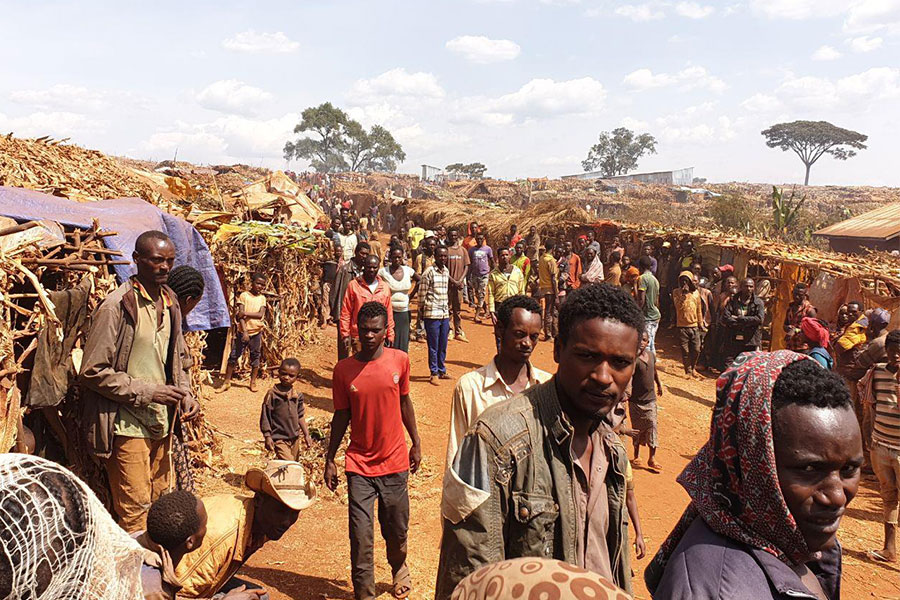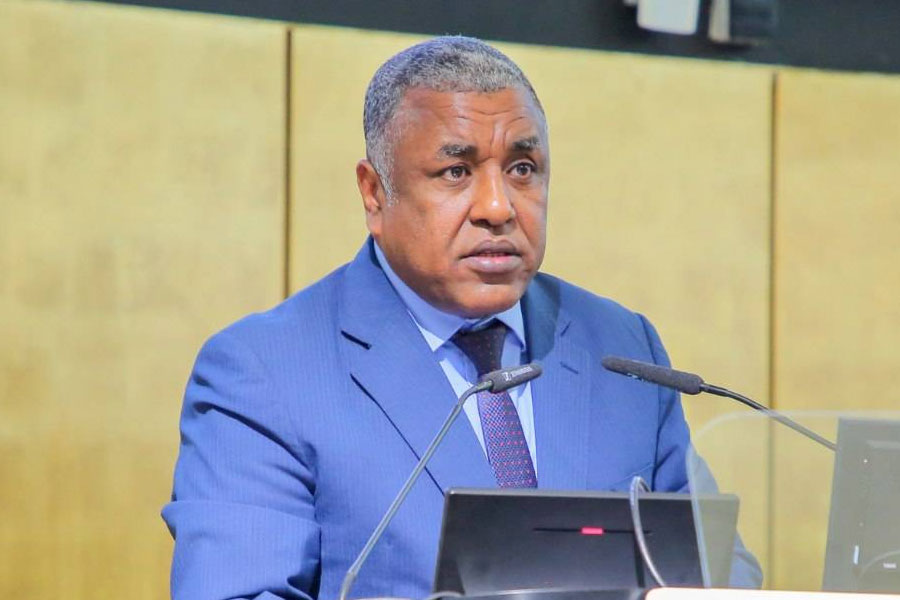
My Opinion | Sep 18,2021
Jun 4 , 2022
By Christian Tesfaye
When President Vladimir Putin ordered his troops into Ukraine, few would have anticipated the sheer pain this was going to cause everybody else. At the outset, we were treated to awe at the unprecedented levels of American and European sanctions against Russia, and reminded well of how severely a country can be damaged without having to put a single soldier on its soil. Such a mesmerising show of economic power, it was said, will remind Russia that it is just one big gas station armed with nuclear weapons. It seemed true.
Initially, I did believe that the world’s 11th largest economy can be deprived with little to no consequence to everyone else. It is actually an even smaller economy than Italy.
What could possibly go wrong?
The problem is that GDP measures could be misleading. Sure, Russia is a much smaller economy than its political and military capability would suggest, and it is over-dependent on its economy on energy exports. But, with Ukraine, it is also the breadbasket of the world as well as one of the central sources for the minerals the world needs to power civilisation. A country that exports iPhones and services probably has a higher GDP than one that exports wheat and edible oil, but it is the latter that has far greater significance to world food security.
Consider this. If economic activity suddenly ceased in Addis Abeba, it would be disastrous for the country’s GDP. If the same happened to the main breadbasket of the country, the direct impact on GDP may be lower but millions of people in Ethiopia would feel the effects much more adversely. This is what is happening with the Russia-Ukraine crisis. They are small economies but they help feed much of the world.
Whatever the debates about the North Atlantic Treaty Organisation (NATO), it was unacceptable for Putin to have invaded Ukraine. War never solves anything but makes the political crises worse. Had that decision never been made, the rise in prices of fuel, wheat, edible oil, fertilisers and metals would be much less severe.
It is why US President Biden is trying to make, “Putin’s price hikes,” stick. The argument is that sanctioning Russia, and thus cutting all the energy and food the country could supply to the rest of the world, was something that the US has been forced to do. “Putin is making us exasperate the food and energy crisis,” Biden seems to be saying.
For some countries, in the aftermath of COVID-19, the Russia-Ukraine crisis is proving to be the last straw. Sri Lanka is the most talked about as rolling crises have resulted in a debt default. Bakeries have closed shop; fuel and power are being rationed; newspapers have stopped publication and national exams postponed due to paper shortages; and some overseas consulates are shut down.
The consensus is that several countries will follow Sri Lanka. Debt defaults will rise, millions will fall into poverty and hunger and starvation will increase. It is a sad scenario but few in the developed world seem to be as concerned. It is only once the economic crisis boils over into socio-political calamity, or conflict, that foreign correspondents will be parachuted in to cover the “juicy” stories of widespread suffering. The very "lucky" ones may even get to see Nima Elbagir of CNNfame in the flesh.
For the sake of the dozens of countries under high debt stress and in poor economic situations, world leaders need to bring the crisis in Europe to an end, by any means possible. If this is negotiation, so be it. Every other country at war is harangued by the US to cease fire and negotiate, including Ethiopia.
Why is it so taboo to consider a negotiated settlement in the case of Russia and Ukraine? Would the outcome make some parties unhappy? Of course, but that is what happens in every negotiation.
Too often, we are told that Putin is the second coming of Hitler and should be stopped by any means possible. But this assumes that the West is in the right in the same way Britain and the US were in World War II and that Russia is in the wrong in the same way Nazi Germany was back then. If anything, the parallels are much closer to the Cold War; it is a struggle for global hegemony where what is “right” is not the priority.
It helps to remember that there are dozens of countries that want nothing to do with this but are likely to pay the steepest price. What is the price of making Putin pay? Five Sri Lankas? 20? 30? How million more people pushed into poverty? 10 million? 100 million? Half a billion? What level of starvation and malnourished children? 40 million? 80 million?
Answering these should help get some moral clarity.
PUBLISHED ON
Jun 04,2022 [ VOL
23 , NO
1153]


My Opinion | Sep 18,2021

Commentaries | Jun 07,2025

Fortune News | Dec 19,2020

View From Arada | Feb 26,2022

Featured | Apr 26,2019

Radar | Jun 15,2025

Sunday with Eden | Dec 24,2022

Verbatim | Nov 16,2019

Life Matters | Aug 03,2019

Commentaries | Mar 16,2019

My Opinion | 131974 Views | Aug 14,2021

My Opinion | 128363 Views | Aug 21,2021

My Opinion | 126301 Views | Sep 10,2021

My Opinion | 123917 Views | Aug 07,2021

Dec 22 , 2024 . By TIZITA SHEWAFERAW
Charged with transforming colossal state-owned enterprises into modern and competitiv...

Aug 18 , 2024 . By AKSAH ITALO
Although predictable Yonas Zerihun's job in the ride-hailing service is not immune to...

Jul 28 , 2024 . By TIZITA SHEWAFERAW
Unhabitual, perhaps too many, Samuel Gebreyohannes, 38, used to occasionally enjoy a couple of beers at breakfast. However, he recently swit...

Jul 13 , 2024 . By AKSAH ITALO
Investors who rely on tractors, trucks, and field vehicles for commuting, transporting commodities, and f...

Jul 5 , 2025
Six years ago, Ethiopia was the darling of international liberal commentators. A year...

Jun 28 , 2025
Meseret Damtie, the assertive auditor general, has never been shy about naming names...

Jun 21 , 2025
A well-worn adage says, “Budget is not destiny, but it is direction.” Examining t...

Jun 14 , 2025
Yet again, the Horn of Africa is bracing for trouble. A region already frayed by wars...

Jul 6 , 2025 . By BEZAWIT HULUAGER
The federal legislature gave Prime Minister Abiy Ahmed (PhD) what he wanted: a 1.9 tr...

Jul 6 , 2025 . By YITBAREK GETACHEW
In a city rising skyward at breakneck speed, a reckoning has arrived. Authorities in...

Jul 6 , 2025 . By NAHOM AYELE
A landmark directive from the Ministry of Finance signals a paradigm shift in the cou...

Jul 6 , 2025 . By NAHOM AYELE
Awash Bank has announced plans to establish a dedicated investment banking subsidiary...